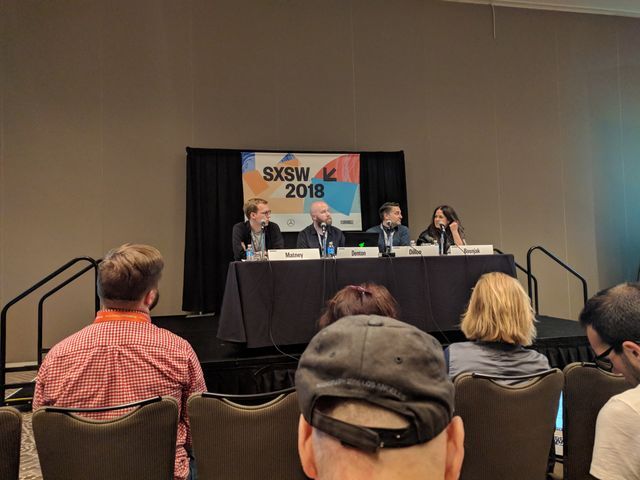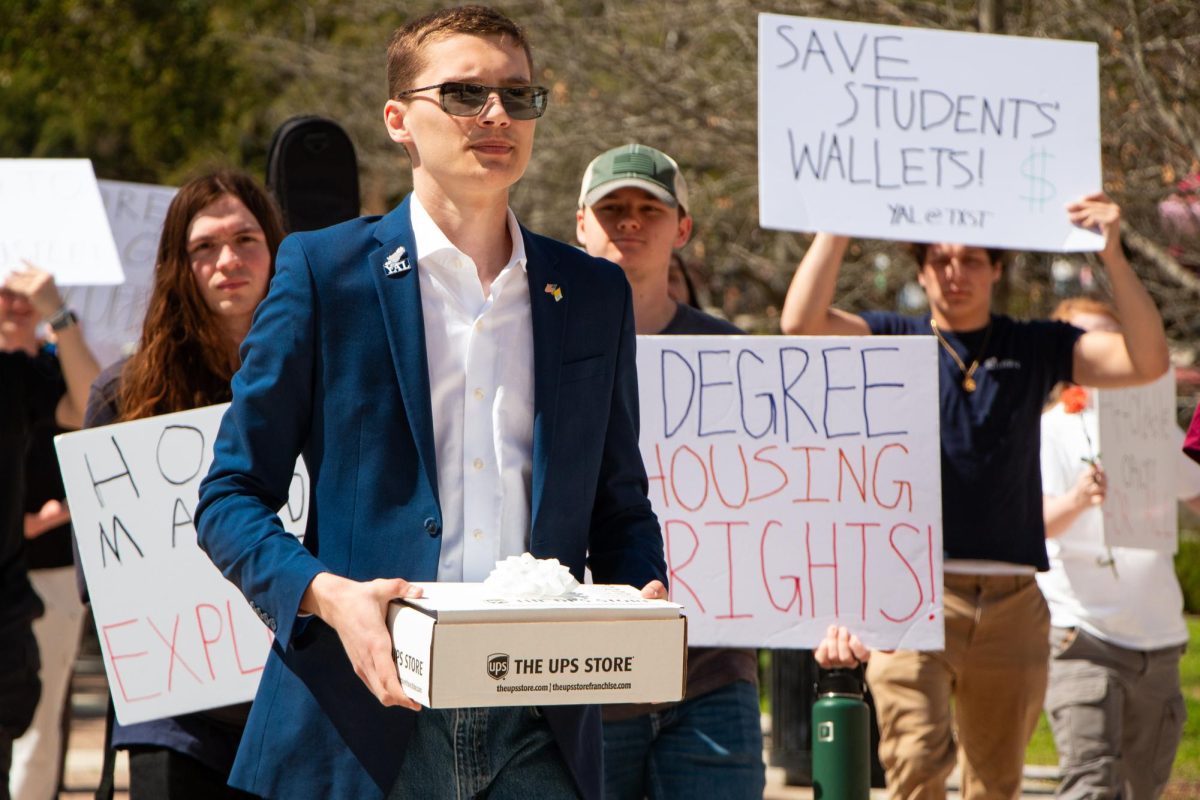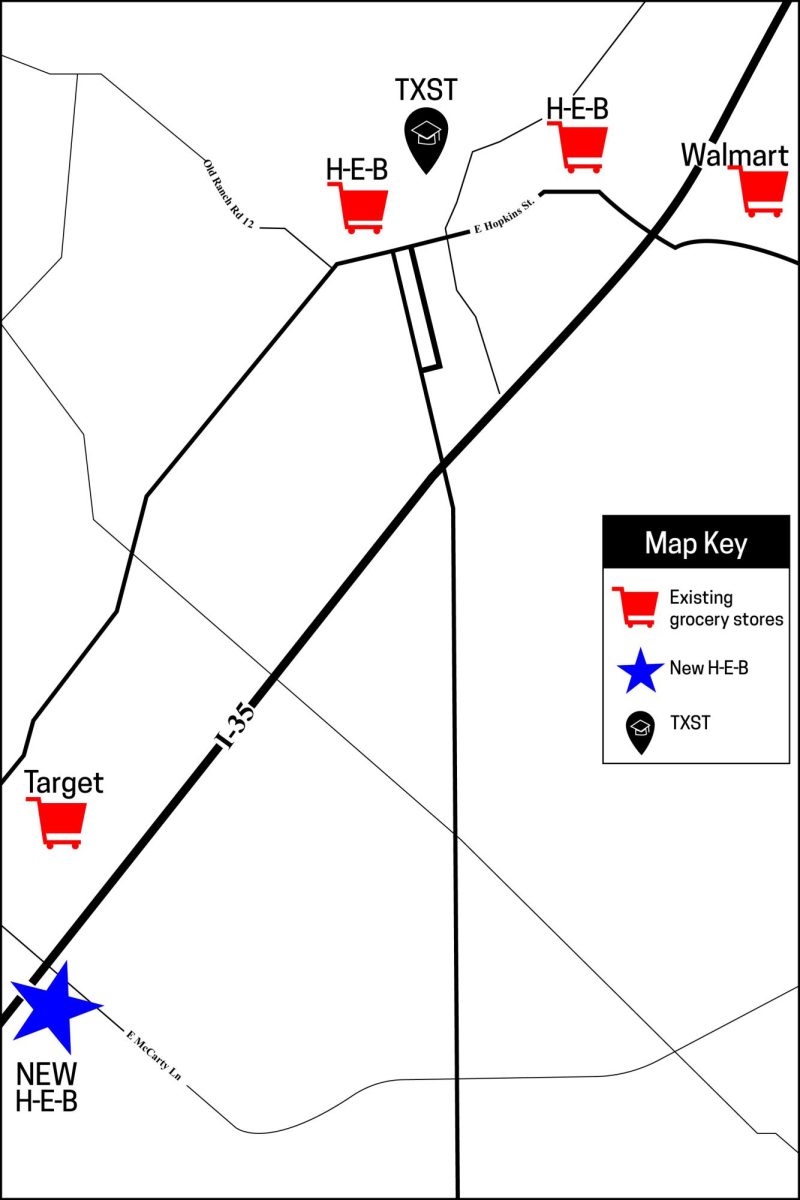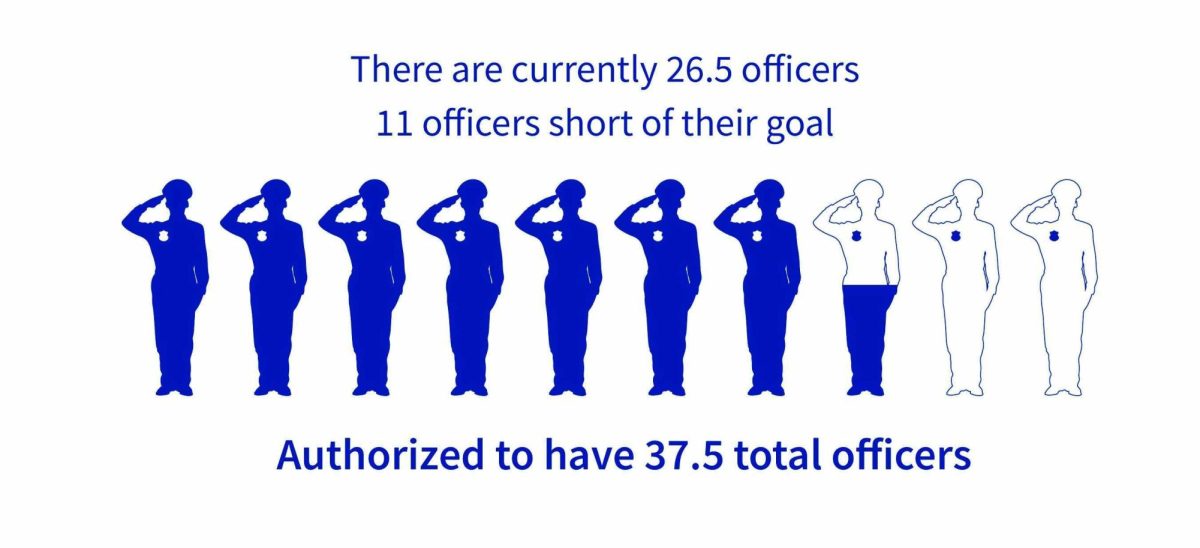SXSW panel “Singularity is here: Future of Data Mining” discussed ideas of virtual reality and the future of data mining March 15 at the JW Marriott salon.
The panel ended with a call to action in which Samantha Mathew, CEO, and co-founder of Venn.Agency in Los Angeles put $10 million up as a prize for anyone who can develop a “soul server” that would independently host the public’s data.
The conversation considered virtual reality as a natural progression in our trend of integrating technology increasingly seamlessly into our lives and posited the question of how valuable our data is and what our rights to it are.
Sandra Ro, managing partner and COO at UWINCorp, said data is more valuable than we understand and will only increase in value.
“Data is the new gold,” Ro said. “Data will become more valuable.”
Benjamin Durham, COO of Thrillbox, said attention is also valuable.
“We think that attention is a currency,” Durham said.
The problem of centralized technological power was emphasized when Dunham said how granular the types of data being collected are in the virtual reality space with which he works and predicts will be the future of digital media. The tools he works with collect amounts of data that can be difficult to grasp at dozens of frames per second.
“We’re tracking 15-25 data points per frame,” Durham said. “It’s better than a thumbprint.”
The issue of massive amounts of data being centralized by a handful of large organizations is that those data can be used to develop psychographic images of different types of consumers in a way that can unconsciously mobilize them. The panel pointed to Cambridge Analytica and their influence on the 2016 presidential election.
Further, this data is collected without the user having any rights or access to it and it is specified to the user. Dunham said that in his data collection they avoid this by anonymizing users.
“We use an old cryptography method called pseudonymization,” Dunham said.
Pseudonymization allows users data to be collected and analyzed without having the data connected to their identity, ensuring privacy.
The panel’s solution to these issues of privacy and data independence was to advocate for and actively create decentralized networks and open sourced projects.
“A decentralized set of networks could solve a lot of the problems we have,” Ro said.
Hypothetically, this decentralized network would not only provide privacy but also could be used to support positive causes in our society.
“We have the ability to hone in on this data in a way that helps society,” Ro said.
They also said that this was not a small or unlikely chain of events in the future.
“There’s an entire segment that challenges the notion that we should all just click to agree to the terms of service,” Ro said.
“There are more people trying to fix the web than there are trying to mess it up,” Mathews said.
In order to galvanize the innovation needed to jumpstart this decentralized vision of the internet, Mathews announced she would be setting up a prize of $10 million dollars for anyone who can create a “Soul Server” that would host the decentralized network. She called out the likes of Elon Musk and Steven Spielberg to contribute to the prize and aims to award it at this time next year.
“I’m talking about this because I feel it happening,” Mathews said.
SXSW panel: Decentralized networks may be the future, prize set for contributors
March 16, 2018
A marque in downtown Austin is set up to display SXSW 2018 for one of the festival’s biggest years.
Photo by: Katie Burrell | News Editor
0
Donate to The University Star
Your donation will support the student journalists of Texas State University. Your contribution will allow us to purchase equipment and cover our annual website hosting costs.
More to Discover









